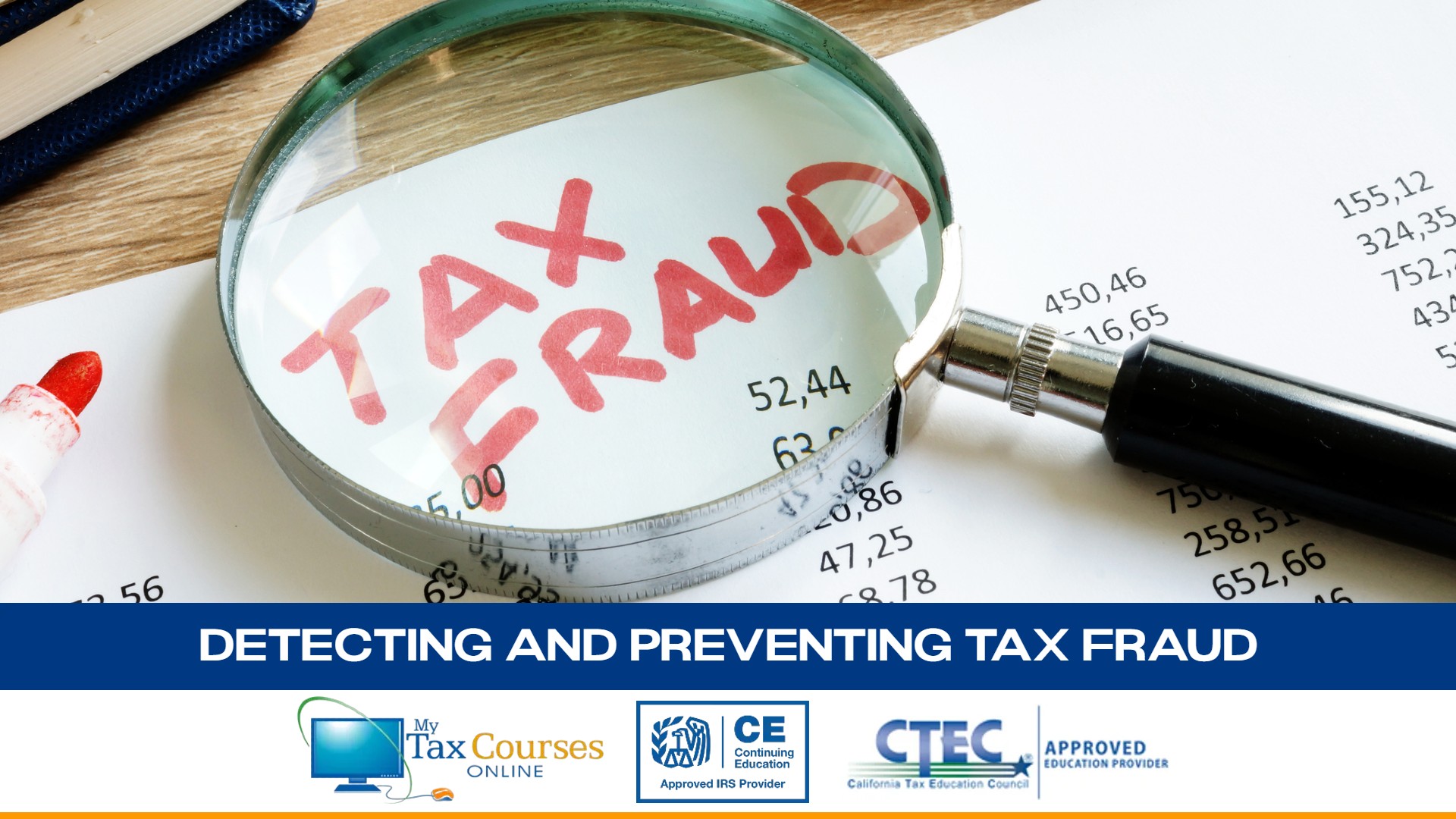Did you know that tax fraud costs the US government billions of dollars in revenue each year? As a tax preparer, you are critical in identifying and preventing tax fraud, ensuring the tax system's integrity, and maintaining public trust. This blog explores the role of tax preparers in identifying tax fraud and the measures they can take to detect and report suspicious activities.
Understanding Tax Fraud
Tax fraud involves deliberately falsifying information on tax returns to reduce tax liability. Common examples include underreporting income, inflating deductions, claiming false expenses, and hiding assets. Tax fraud is illegal and can result in severe penalties, including fines, imprisonment, and the loss of professional licenses for tax preparers involved in such activities.
The Responsibilities of Tax Preparers
As a tax preparer, you have a fiduciary duty to your clients and the government to prepare accurate and honest tax returns. Your responsibilities include:
- Accurate Reporting: Ensuring all information reported on tax returns is accurate and complete.
- Diligent Verification: Verifying the authenticity of the financial documents provided by clients.
- Compliance: Adhering to all applicable tax laws and regulations.
- Ethical Conduct: Maintaining high ethical standards and avoiding any practices that could be considered fraudulent.
Detecting Tax Fraud
As a tax preparer, you are uniquely positioned to identify potential tax fraud. Be on the lookout for:
- Anomalies in Financial Records: One of the primary methods for detecting tax fraud is identifying anomalies in financial records. Tax preparers should look for:
- Unusual Transactions: Transactions that seem out of the ordinary or inconsistent with a client's financial history.
- Inconsistent Information: Discrepancies between reported income and other financial documents, such as bank statements or investment records.
- Sudden Changes: Significant and unexplained changes in income, expenses, or deductions.
- Incomplete or Missing Documentation: Clients attempting to commit tax fraud may provide incomplete or missing documentation. Tax preparers should be wary of:
- Lack of Supporting Documents: Clients who cannot provide receipts, invoices, or other documentation to substantiate their claims.
- Unverifiable Sources: Documents that cannot be independently verified, such as income from unknown or unverifiable sources.
- Unreasonable Deductions and Credits: Excessive or unreasonable deductions and credits can be a red flag for tax fraud. Tax preparers should scrutinize the following:
- Overstated Deductions: Deductions that appear excessively high compared to the client's income or industry standards.
- False Credits: Claims for tax credits for which the client is not eligible.
Measures for Preventing Tax Fraud
Tax preparers can take several proactive measures to prevent tax fraud:
1 - Know Your Client
Understanding the client's financial situation is crucial. Tax preparers should conduct thorough initial consultations to gather detailed information about the client's income, expenses, and financial history.
2 - Maintain Detailed Records
Keeping detailed records of all transactions and communications with clients helps ensure transparency and accountability. This includes maintaining copies of all documents provided by clients and notes from consultations.
3 - Use Technology
Advanced software and tools can help tax preparers detect anomalies and inconsistencies in financial records. These tools can analyze data more efficiently and highlight potential issues for further investigation.
4 - Report Suspicious Activity
If tax preparers suspect fraud, they are responsible for reporting it to the appropriate authorities. This may include the Internal Revenue Service (IRS) in the United States or other relevant tax agencies. Reporting mechanisms are in place to protect whistleblowers and ensure that fraudulent activities are investigated.
As a tax preparer, your role in identifying and preventing tax fraud is vital to the integrity of the tax system. By diligently verifying information, detecting anomalies, and maintaining high ethical standards, you help ensure compliance with tax laws and protect the public interest. Remember, your vigilance not only prevents revenue loss but also upholds the trust and fairness that are essential to a functioning tax system.




